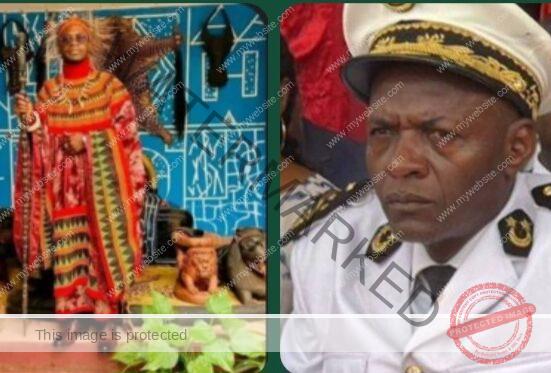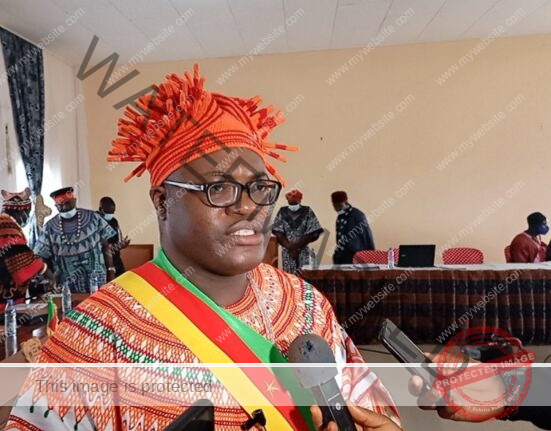Justice Ebong Frederick Alobwede entered history by proclaiming the Restoration of the Independence of Southern Cameroons.
By Uchiba Nelson
Early Life and Background
Justice Ebong Frederick Alobwede was born in Southern Cameroons during the era of British Trusteeship. From an early age, he developed a keen sense of justice and patriotism, shaped by the political uncertainty and broken promises that defined the period leading to the 1961 plebiscite. These early experiences sowed in him the conviction that his people were entitled to justice, dignity, and sovereignty.
Education
A product of the British colonial education system, Justice Ebong excelled in his studies and pursued law with determination. He obtained professional legal training and qualifications that placed him among the pioneering legal minds of Southern Cameroons. His education gave him a strong grounding in both jurisprudence and international law, disciplines he would later draw upon in his historic stand for Ambazonian independence.
Legal and Judicial Career
Justice Ebong rose through the ranks of the judiciary with a reputation for integrity, brilliance, and fearlessness. He was widely respected for his mastery of the law and his insistence on fairness, even when such decisions ran against the interests of powerful political actors.
In a judiciary often under political pressure, he stood out as incorruptible, ensuring that the principles of justice were never subordinated to expediency. His courtroom presence and judgments became synonymous with courage and impartiality.
Public Life and Leadership
Outside the courtroom, Justice Ebong became a voice of conscience for Southern Cameroons. He openly questioned the legitimacy of the “union” between Southern Cameroons and La République du Cameroun, noting the absence of any binding treaty. He consistently highlighted the betrayal of the UN Trusteeship system and the systematic marginalization of Southern Cameroonians under successive regimes in Yaoundé.
The Historic Proclamation of Independence
On 30 December 1999, Justice Ebong Frederick Alobwede entered history by proclaiming the Restoration of the Independence of Southern Cameroons. His declaration was grounded in law, history, and justice. It was a fearless act that reawakened a silenced nation and gave fresh legitimacy to the Ambazonian cause.
This proclamation provided a legal and moral framework for the modern independence struggle. It demonstrated that Ambazonia’s sovereignty was not a plea for sympathy but a right anchored in international law.
Persecution and Defiance
For his courage, Justice Ebong became a target of the regime in Yaoundé. He was harassed, surveilled, and subjected to intimidation. Yet, he remained unshaken, embodying the principle that truth and justice are stronger than repression. His resilience inspired many others to take up the cause of liberation.
Great Accomplishments
Judicial Excellence: Earned recognition as one of the most principled and respected jurists of his generation.
Nationalist Leadership: Proclaimed the Restoration of the Independence of Southern Cameroons in 1999.
Voice of Conscience: Defended the right of Southern Cameroons to self-determination, even at great personal risk.
Legacy of Inspiration: Sparked a new era of resistance that continues to shape the Ambazonian struggle today.
Legacy and Remembrance
Justice Ebong Frederick Alobwede occupies an enduring place in Ambazonian history as a founding father of modern Ambazonian nationalism. His courage, vision, and unwavering stand against injustice continue to inspire new generations of Ambazonians at home and in the diaspora.
His life reminds us that nations are built on the sacrifices of those who dare to speak when silence is safer. His proclamation remains a cornerstone in the march toward freedom.
Uchiba Nelson for The Independentist





















Leave feedback about this